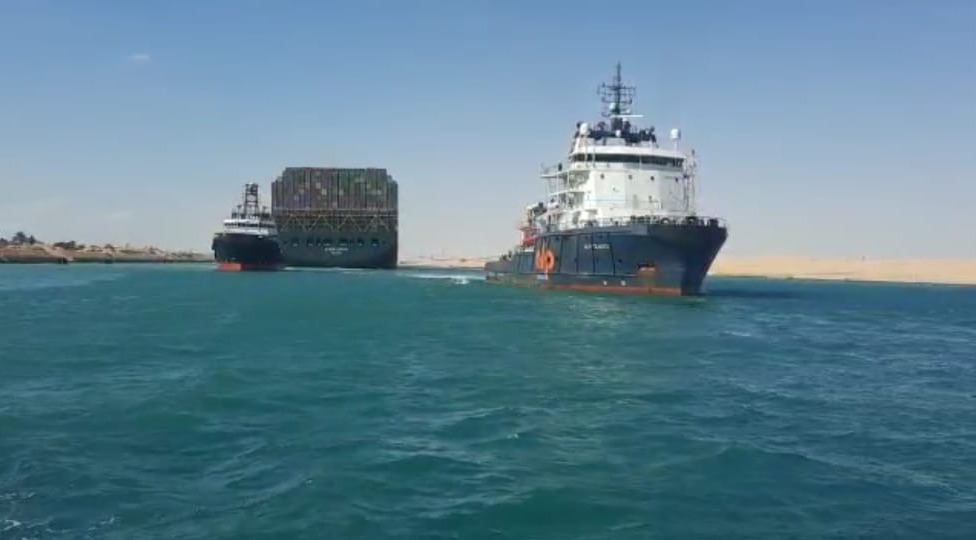The Suez Canal waterway that connects the Mediterranean Sea to the Red Sea has suffered revenue losses ever since the Iran-backed militant group, the Houthis, began attacking vessels traveling through it. Image by Suez Canal Authority Egypt's Suez Canal revenues dropped by 23.4% year-on-year to $7.2 billion in fiscal year 2023-24 from $9.4 billion the previous year, due to some shipping companies opting for alternative routes to avoid attacks by Iran-aligned Houthis in the Red Sea.
Suez Canal revenue drops The number of ships using the canal fell to 20,148 in 2023/24 from 25,911 the year before, Suez Canal Authority chief Osama Rabie said on Thursday, according to local media reports.
"The Suez Canal, which used to bring Egypt nearly $10 billion per year, has seen its revenues decrease by 40 to 50 percent," AFP quoted Egypt's President Abdel Fattah El-Sisi as saying at the opening of the annual Egypt Energy Show in Cairo earlier this year.
The man-made waterway stretching from Egypt's Port Said to Suez, connecting the Mediterranean Sea to the Red Sea, has faced revenue losses since November, when the Iran-backed militant group, the Houthis, started attacking vessels passing through it.
The Houthi-organized assaults on freight-carrying ships and other transport vehicles began as retaliation and protest against Israel's military actions targeting Gaza and the broader Palestinian territory.
The Suez Canal is crucial for Egypt's foreign currency earnings, and authorities have made efforts to enhance its revenues in recent years, such as through a 2015 expansion.
Red Sea crisis The ongoing series of attacks along Red Sea shipping lanes, known as the Red Sea crisis, has presented a major challenge to global trade and supply chains.
In response, numerous transport, trade, and logistics companies have altered their shipping routes, opting for longer paths around Africa to avoid encounters with the Houthis. These detours have resulted in extended travel durations and increased freight expenses, placing significant pressure on global trade and transportation operations.
Earlier this month, the CEO of shipping giant Maersk said that the Red Sea crisis would continue to affect shipping lines and freight costs in 2023.
"The longer that this lasts, the more our costs will get deeply ingrained. We don't know yet exactly how much of these costs we will recover and for how long," said Maersk CEO Vincent Clerc.
"The higher rates we are seeing right now are of a temporary nature. We will see eventually that they go back to market as some of these problems get alleviated either by the new tonnage being phased gradually in or by us resuming normal sailing routes in the near future," he added.












